Intel Core i9-13900K and i5-13600K Review: Raptor Lake Brings More Bite
by Gavin Bonshor on October 20, 2022 9:00 AM ESTCPU Benchmark Performance: Rendering And Encoding
Rendering tests, compared to others, are often a little more simple to digest and automate. All the tests put out some sort of score or time, usually in an obtainable way that makes it fairly easy to extract. These tests are some of the most strenuous in our list, due to the highly threaded nature of rendering and ray-tracing, and can draw a lot of power.
If a system is not properly configured to deal with the thermal requirements of the processor, the rendering benchmarks are where it would show most easily as the frequency drops over a sustained period of time. Most benchmarks in this case are re-run several times, and the key to this is having an appropriate idle/wait time between benchmarks to allow for temperatures to normalize from the last test.
One of the interesting elements of modern processors is encoding performance. This covers two main areas: encryption/decryption for secure data transfer, and video transcoding from one video format to another.
In the encrypt/decrypt scenario, how data is transferred and by what mechanism is pertinent to on-the-fly encryption of sensitive data - a process by which more modern devices are leaning to for software security.
We are using DDR5 memory on the Core i9-13900K, the Core i5-13600K, the Ryzen 9 7950X, and Ryzen 5 7600X, as well as Intel's 12th Gen (Alder Lake) processors at the following settings:
- DDR5-5600B CL46 - Intel 13th Gen
- DDR5-5200 CL44 - Ryzen 7000
- DDR5-4800 (B) CL40 - Intel 12th Gen
All other CPUs such as Ryzen 5000 and 3000 were tested at the relevant JEDEC settings as per the processor's individual memory support with DDR4.
Rendering
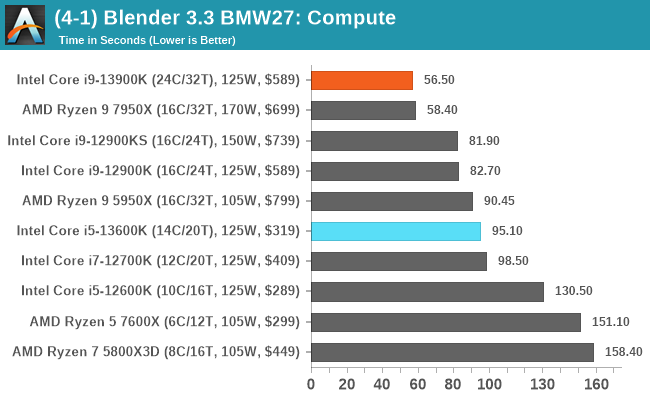
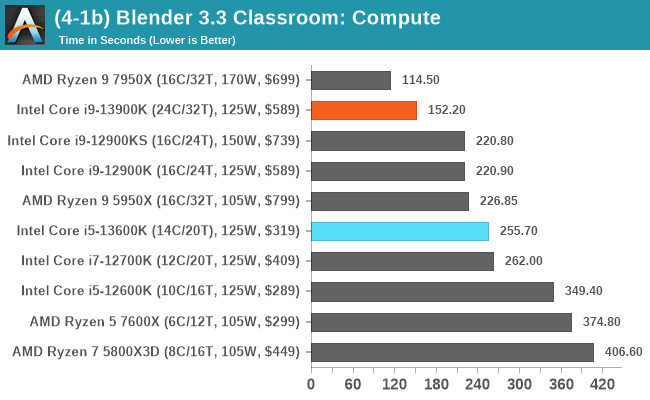
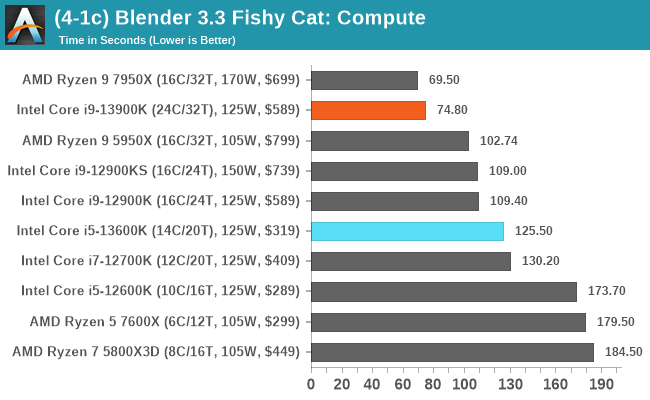
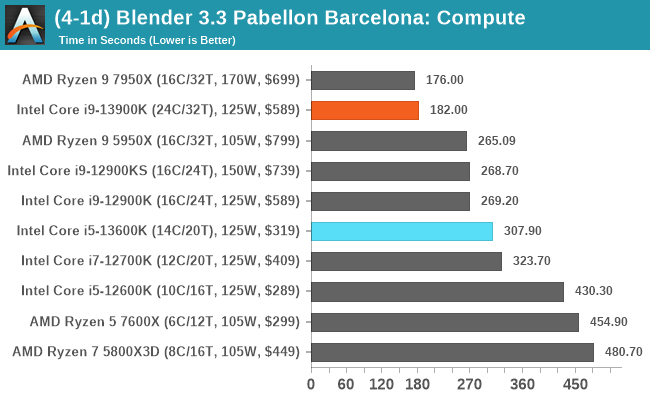
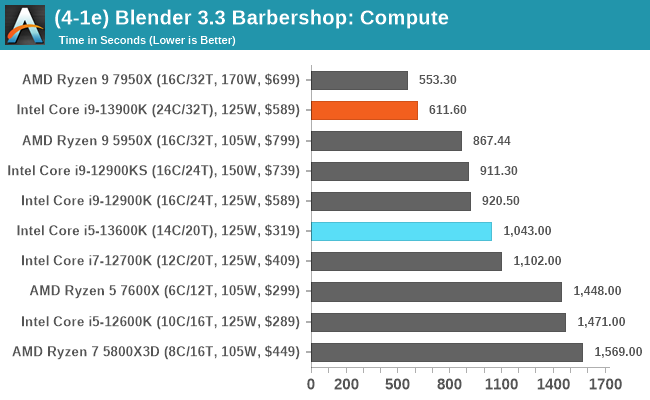
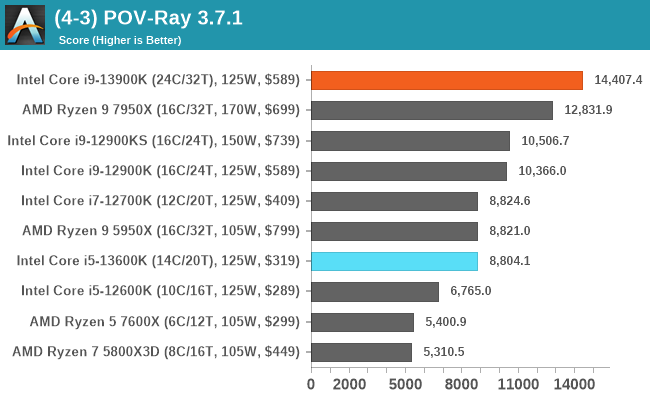
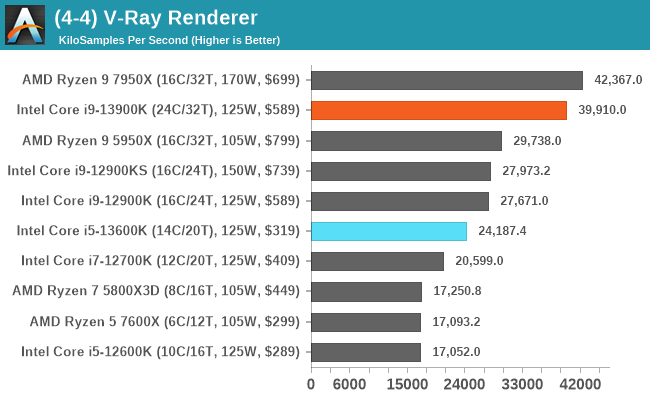
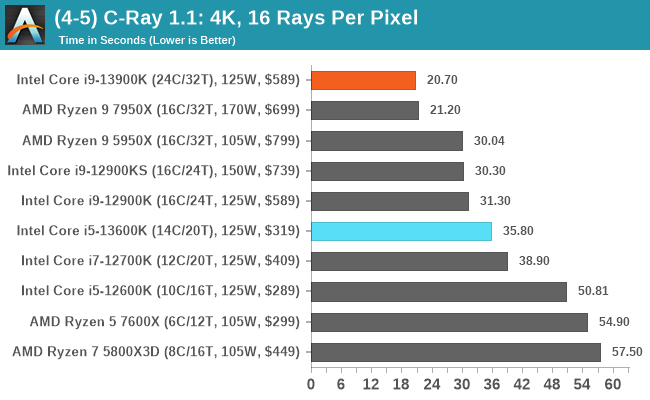
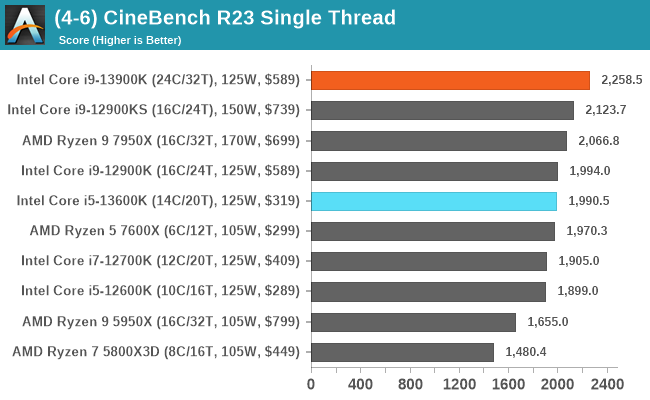
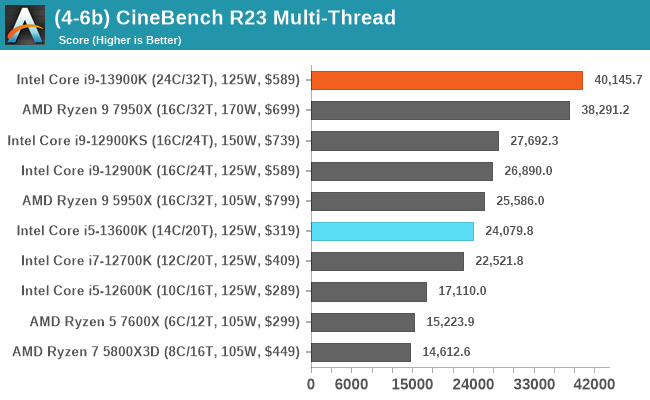
Identifying what core comes where in our rendering tests, both the Core i9-13900K and Ryzen 9 7950X sit comfortably at the top of the tree. Depending on the test, it’s a consistent battle for rendering supremacy. Where things aren’t as close are in our POV-Ray and V-Ray tests, where the Core i9-13900K has a distinct advantage; likely down to having eight more logical cores than the 7950X.
Encoding
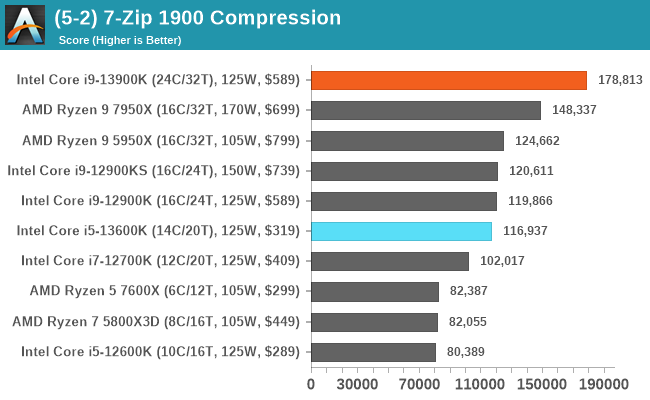
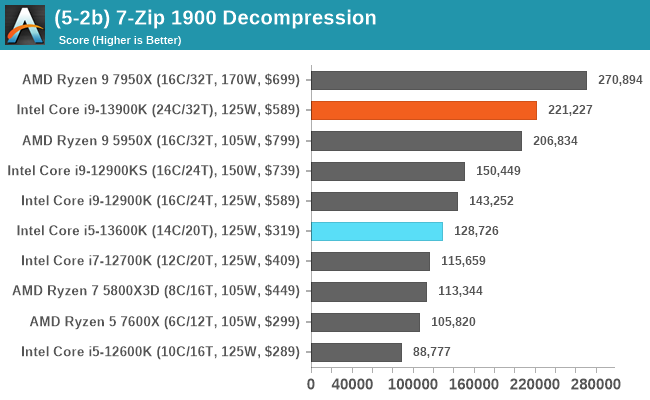
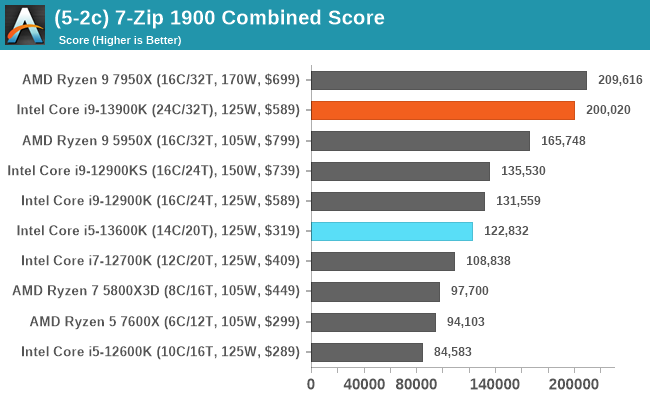
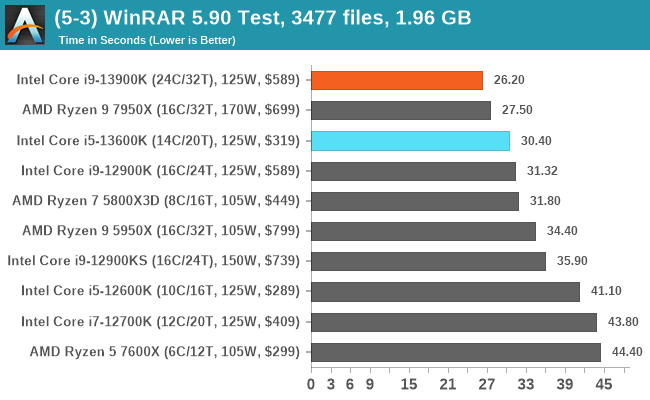
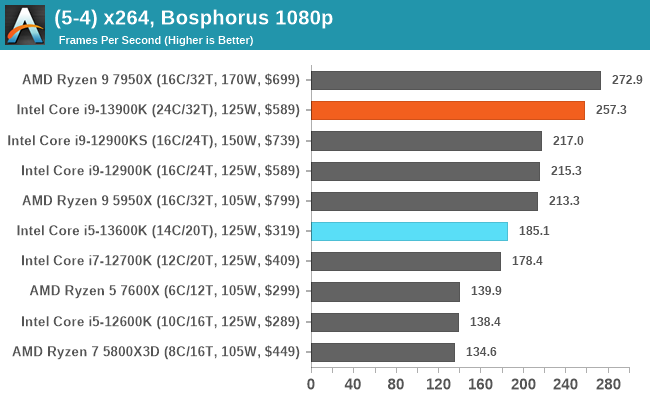
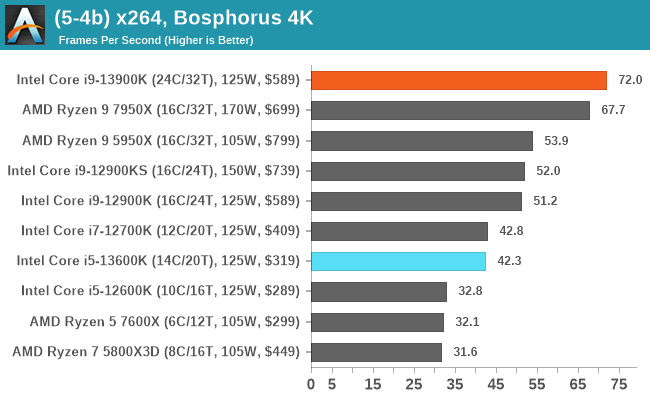
In our encoding tests, interestingly the Core i9-13900K looks to have the advantage in compressing files with 7-Zip. It’s a little different for AMD as the Ryzen 9 7950X decompresses the data better, with the overall combined advantage going to AMD in this particular test. In our updated x264 benchmark, Intel takes the lead in 4K encoding, while AMD has the lead in 1080p encoding; both are equally viable options, however.










169 Comments
View All Comments
FinTechno - Saturday, October 22, 2022 - link
I don't know what is it but openbenchmarking.org gives geometric mean of all tests +20% for 7950X. In many tests 7950X kills 13900K by huge margin. Please see https://openbenchmarking.org/vs/Processor/AMD%20Ry... ReplyCT007 - Sunday, October 23, 2022 - link
So many apps that nobody uses. . . -_- ReplyCinzzano - Saturday, October 22, 2022 - link
Why would undercut all of the processors with such a piss poor RAM configuration... this is just ridiculous to pair 13th Gen Zen4 and even 12th Gen with such a slow memory and those timings...The whole review and testing are invalid. Reply
James5mith - Saturday, October 22, 2022 - link
"Whereas Alder Lake officially topped out at DDR5-4800, Alder Lake can run at DDR5-5600, helping to feed the beast a bit more with higher memory clockspeeds."Guessing the second mention should be Raptor Lake. Reply
Hrel - Sunday, October 23, 2022 - link
I really don't want any CPU over 65W Replynandnandnand - Sunday, October 23, 2022 - link
You can limit TDPs yourself. ReplyContrabondo - Friday, December 16, 2022 - link
To get performance lower than zen 3 5950x?FYI 5950x when properly tuned draws about 70-75W in Cinebench R23 at 3200MHz Reply
Archer_Legend - Sunday, October 23, 2022 - link
Nice review, however I have to say that this site has lost itself after the departure of Andrei and Ian.The deep dives on mobile processors for smartphones were very important as you were the only ones to do those and it is a real shame not to have Spec data and a detailed comparison of the A14, A15, Exynos 2100, Exynos 2200, Snapdragon 888, Snapdragon 8 gen 1, Snapdragon 8 plus gen 1, Dimensity 9000 and Dimensity 9000+.
I hope that you find and you are actively looking for a new editor for those pieces of content and that onceyou find one you push out deep dives on those SOCs even if they will not be the latest and greatest because it will complete the amazing database of reviews which stopped with 865 and those reviews where real gold! Reply
Gothmoth - Sunday, October 23, 2022 - link
good that intel is able to compete for now. but i go for the AM5 plattform.support until 2025 at least and the X 3D versions will blow intel out of the water.
i am not buying an already EOL plattform for a bit more performance. Reply
TheinsanegamerN - Monday, October 24, 2022 - link
Why not stop buying CPUs every year? It's a waste of money. Reply